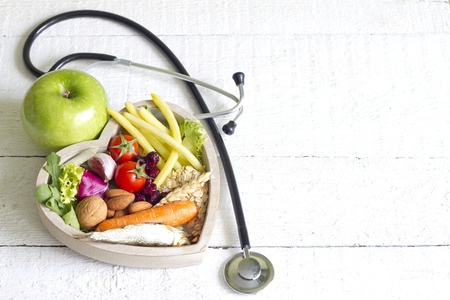Heart surgery is one of the most critical types of operations that can be done on the human body, and it is usually only pursued if other, less aggressive treatments have been exhausted. To provide the optimum conditions for a successful procedure, preoperative and postoperative guidelines must be observed. One of those guidelines pertains to the patient’s diet.
What to Eat Leading up to Surgery?
Simply put, one of the biggest problems complicating heart surgery is obesity. The more overweight a patient is, the more difficult the recovery will be. Diets designed to help prepare a person for heart surgery, then, are often focused on losing weight. Time is of the essence, and the more time before surgery the patient has to focus on this goal, the better. If the patient has at least two weeks before heart surgery, they might benefit from emphasizing fruits, vegetables, low-fat protein, whole grains, and low sodium in their diet to help lose weight and lower blood pressure as much as possible.
The total number of calories per day, on average, to consume pre-heart surgery is fairly low, at 1,200 to 1,800. Diet recommendations include more servings of fruits and vegetables than whole grains, proteins, or healthy fats. Restrictions are suggested for sweets, alcohol, and artificial sweeteners.

What to Eat After Surgery?
As with the pre-surgery diet, what to eat after surgery often leads to a leaner, heart-healthy diet. Recommended is a diet with extra omega 3 fatty acids, folate, vitamin K, magnesium, and unsaturated fats. On the other hand, it is not recommended that saturated and trans fats, high sodium foods, processed sugar, and cholesterol be included. There are additional dietary precautions to take after heart surgery, too. Eat more whole grains and fish, and fry foods in olive oil. Find ways to add foods with antioxidants to your meals, including ingredients like pecans, blueberries, artichokes, and kale.
Healthy Diet for a Stronger Heart
What else can be done with diet to strengthen the heart after surgery? Certain changes will help the heart have an easier time pumping blood throughout the body. A healthy diet for a stronger heart includes skim milk, leafy greens, berries, yogurt, and oatmeal. Reducing the amount of sodium in the diet also helps. It is also a good idea to reduce the amount of cholesterol in your diet. One way to do that is to stop using mayonnaise. That doesn’t mean you have to eat dry sandwiches – just find something else that’s a healthier substitute. If it’s too hard to do without entirely, then try reducing the amount that you use as much as possible.
A heart-healthy diet is beneficial both before and after heart surgery. Preparing your heart for surgery means taking some of the stress from it by losing weight and helping your heart after surgery often consists of a lifestyle change, including better eating habits, lower blood pressure, and reduced cholesterol.

